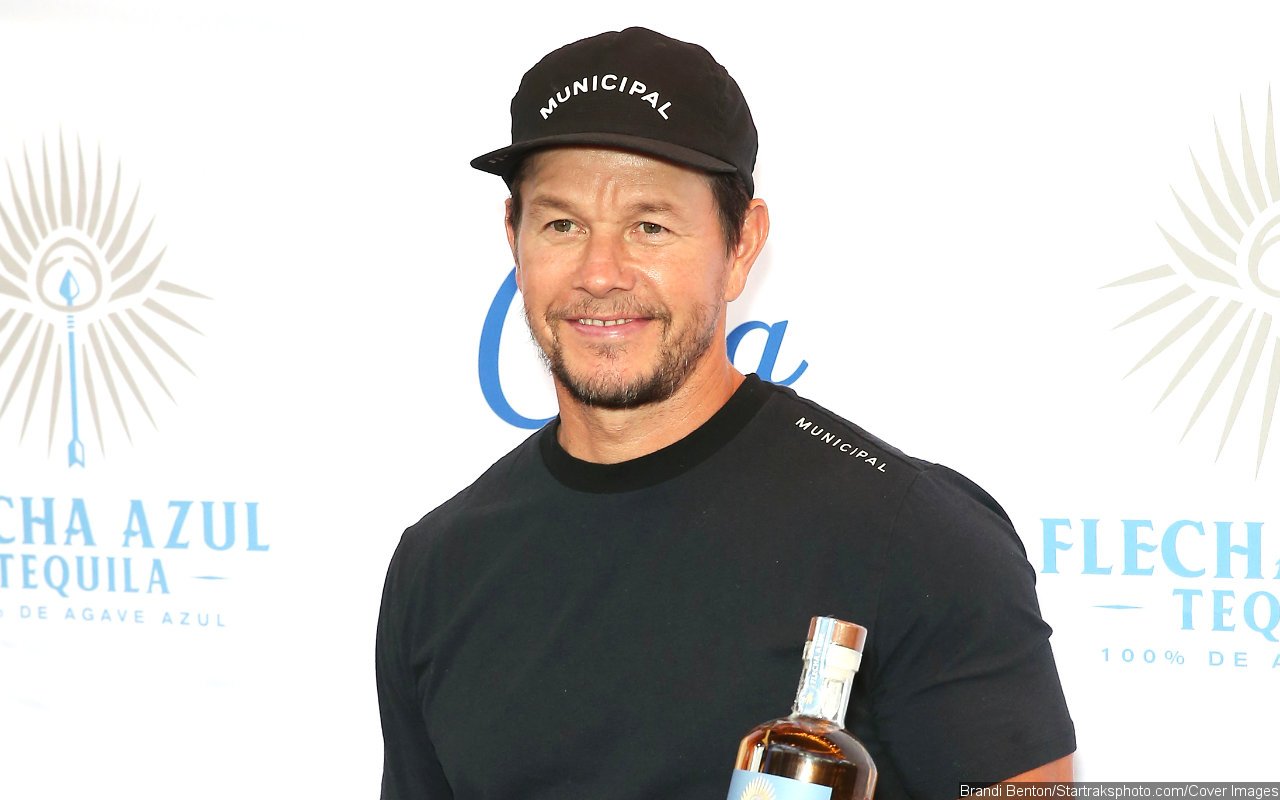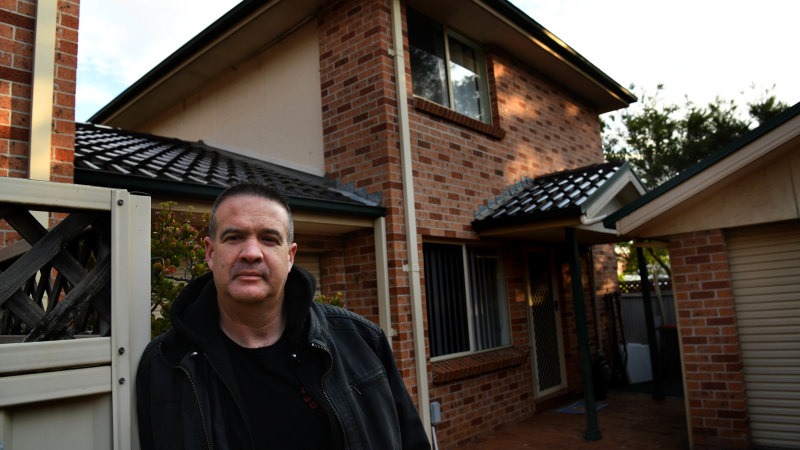By David Free
A Hillsong convention in Australia in 2002.Credit: Edwina Pickles
Save articles for later
Add articles to your saved list and come back to them any time.
As a rule, it’s a bad sign when multiple documentaries and podcasts about you come out simultaneously. A single documentary can be cause for celebration. Two or three at once suggests you’ve been up to no good. More than three and you’re really in strife.
A few years ago, Lance Armstrong got the multiple documentary treatment. More recently it happened to Elizabeth Holmes, the late Jeffrey Epstein and the organisers of the hilariously disastrous Fyre festival.
Now it’s the season of the Hillsong documentary. Late last year came the four-part Hillsong: A Megachurch Exposed. A podcast called Faith on Trial debuted earlier this year. In the US, the four-part documentary The Secrets of Hillsong just went to air. And next week SBS will premiere The Kingdom, presented by Marc Fennell, who grew up attending several Pentecostal churches in Sydney, including Hillsong.
The Hillsong story stretches back to New Zealand in the 1950s, when a young Salvation Army officer named Frank Houston suffered a nervous breakdown, and was reborn as a Pentecostalist. After rising through the ranks of New Zealand’s Assemblies of God church Houston moved his family to Australia in 1976 and established a church called the Sydney Christian Life Centre.
Worshippers at Hillsong Church in Australia.Credit: Dallas Kilponen
It was Frank’s son Brian who turned his father’s operation into a megachurch. Brian was a visionary. In 1983, he founded a branch of the CLC in Sydney’s Hills district. After a mind-expanding visit to America in the late 1980s, he wrote a mission statement called “The Church I See”. He dreamed of creating “a Church of influence … a Church growing so quickly that buildings struggle to contain the increase”.
Over the next decade, Houston made his vision come true. To accommodate his burgeoning flock, larger and larger venues were required – first school halls, then warehouses, and finally a purpose-built 3000-seat auditorium resembling a scaled-down version of the Sydney Entertainment Centre.
This was fitting, because by now Houston’s services had the ambience and production values of a rock concert. There was an in-house electric band to facilitate the dancing, singing and hand-clapping that are hallmarks of Pentecostal worship. Having “planted” branches of his church around the world, Houston tapped a gusher of revenue by licensing the band’s songs for international use. As a nod to the success of the music division, the whole church was renamed Hillsong in 2001.
“I’m not sure a church can be too big,” Houston once said. As Hillsong went mega, Houston acquired the political influence he craved. In his maiden speech to parliament, Scott Morrison credited him as a spiritual mentor. As Prime Minister, Morrison wangled Houston an invite to the White House, where Houston boasted of embracing “the chance to pray for President Trump”.
By that time, Houston needed as much praying for as Trump did. The scandals of Hillsong were starting to catch up with him. These scandals are so various that the documentaries, to fit them all in, have to apply a kind of reverse triaging process, dealing briskly with the misdemeanours first and saving the worst stuff for last.
Carl Lentz and Justin Bieber in a still from The Secrets of Hillsong.
The smaller Hillsong scandals are mostly about money. For years the students at Hillsong’s Bible Colleges were used as unpaid – indeed, fee-paying – janitors and labourers. Houston taught them an inspirational mantra – “Do you believe we get to do this?” – to encourage the notion that they were doing God’s work, as opposed to Houston’s.
Hillsong also pushed the envelope on the tradition of tithing, which mandates that all worshippers, rich and poor, must divert 10 per cent of their earnings to the church. In the Book of Malachi, there is a handy verse proclaiming that anyone who skimps on this obligation is picking the pocket of God Himself. Hillsong’s pastors seem to have been fond of quoting this verse on stage.
In smaller churches, tithes are used to meet essential running costs. At Hillsong, there was enough money left over to let the church’s bigwigs “do the kind of shopping that would embarrass a Kardashian,” as independent Tasmanian MP Andrew Wilkie has put it.
But these financial improprieties seem trivial compared with the fact that Frank Houston, Brian’s father, was a serial child abuser. In New Zealand Frank acquired a reputation for preying on young boys – a reputation that seems to have prompted his sudden departure from that country in the 1970s.
In 1999, the mother of an Australian victim reported Frank’s abuse to the church. With Brian’s knowledge, the victim was given $10,000 as a token of Frank’s regret. In return, the victim agreed to grant Frank his formal “forgiveness”, so that when the ageing pederast went to meet his maker – as he finally did in 2004 – he could stay out of Hell on a technicality.
In 2014, the Royal Commission into Institutional Responses to Child Sexual Abuse put Brian Houston on the stand. Under oath, he distinguished himself by testifying that he would “never forget” the day he discovered that his father was not just a child molester, but “a homosexual” child molester. Apparently these two revelations struck Brian as equally monstrous.
Carl Lentz, the celebrity pastor who was ousted from Hillsong in 2020, pictured in New York in October 2017.Credit: AP
It is, however, against the law to conceal such a crime from the police. In 2021, Houston was charged with concealing a serious indictable offence. His trial began in December last year; closing arguments will be heard later this month. If convicted, Houston could face five years in jail.
In The Kingdom, Marc Fennell offers a personal take on the Hillsong story. Growing up, Fennell was a member of the Hillsong congregation. He knows the church has destroyed lives, but he’s seen it improve lives too. Tainted as the bathwater is, Fennell wants to remind us there is a baby in there. “I remember feeling loved” in the church, he says. It was “really intoxicating.”
Intoxicating is a good word. As Fennell explains, Pentecostalism is “a faith designed to be felt.” Pentekoste is Greek for 50th. According to the New Testament, 50 days after Christ’s resurrection, on the feast of the Pentecost, the Holy Spirit descended on the apostles. “All of them were filled with the Holy Spirit and began to speak in other tongues as the Spirit enabled them,” says the Book of Acts.
Speaking in tongues has always been a staple of Pentecostal practice. There are videos online of Brian Houston doing it. To the untrained ear, it sounds like he’s uttering meaningless babble. It sounds like that to the trained ear too. Modern linguists have established that the random yodels emitted by Pentecostalists don’t have the pattern of a language – not even an “unknown” one.
Whether those doing the babbling understand that is another question. Near the end of The Kingdom, Fennell movingly recalls how lonely he used to feel in the jiving stalls of his megachurch. Everyone around him seemed to be feeling something profound, while he felt nothing. This seemed to mean one of two things. Either everyone else was “lying and putting on an act”, or God was granting them an experience that He was actively withholding from Fennell.
There’s a third possibility, though. Maybe Fennell’s fellow worshippers sincerely believed the Holy Spirit was coursing through them, because they’d been mentally softened up by all the singing and dancing, and by the supposedly charismatic presence of Brian Houston.
Marc Fennell examines Pentecostal Christianity in The Kingdom.
This is another hallmark of Pentecostalism – its reliance on the personality of the charismatic preacher. But charisma is a hard quality to define. It’s been said that Frank Houston had charisma. If he did, it doesn’t show up in the archival videos of his sermons. Indeed, he comes across as a kind of charismatic black hole, a walking negation of vibrancy and charm.
Nor is it easy for an outsider to understand what the Hillsong congregation ever saw in Brian Houston. Despite his lifetime of preaching, he has no discernible way with words. (Sample Houston aphorism: “How awesome is God?“) As for his physical image, Houston has flirted with a bewildering array of style options over the years, without ever seeming to find a stable identity.
Early on he had glasses and a moustache. Both vanished in the 1990s. There was a leather jacket period and a Seinfeldian jeans-with-sneakers period. A ponytail made a brief appearance. At one point he fully shaved his head. These days he attends his frequent legal appointments wearing an Ocean’s 11-style suit and open-necked shirt combo. The documentaries offer a time-lapse portrait of a man with an unlimited wardrobe budget but an uncertain sense of self.
Carl Lentz, the American preacher who became the frontman of Hillsong’s New York franchise in the 2010s, could never be accused of lacking charisma. When Lentz came to Hillsong’s Sydney Bible college in the late ’90s, Houston identified him as a future star and handpicked him to spearhead Hillsong’s expansion into America.
In New York, Lentz became known for his chiselled physique, his lairy spectacle frames, his $10,000 Louis Vuitton hoodies and his provision of spiritual guidance to Justin Bieber. In 2020 he was caught having an extra-marital affair and Houston sacked him. Insiders have said that Houston’s true beef with Lentz wasn’t the adultery but the way his fame had started to eclipse Houston’s own.
Hillsong conference in 2008 in Homebush.Credit: Brendan Eposito
Brian Houston has denounced the current spate of Hillsong podcasts and docos as “mockumentaries.” “We’re under assault,” he says. It’s “the devil’s efforts.”
But who is “we”? Houston’s flock is dwindling. This is the heartening thing about the documentaries. The most eloquent testimony in them comes from decent former congregants who quit the church when they noticed the difference between Houston’s preachings and his practices.
Meanwhile, Donald Trump, Houston’s one-time praying partner, continues to run his own thriving megachurch – one whose leader can never fall from grace, since grace is something he’s never even pretended to have. At Trump’s rallies, the Pentecostal overtones are palpable. There is rock music, and plenty of gibberish. As for charisma, it can’t be denied that Trump is a hard man to look away from, even if you hate what you see.
These scandals are so various that the documentaries, to fit them all in, have to apply a kind of reverse triaging process.
You’d say that Trump has found a way to use Hillsong methods for earthly ends, if it wasn’t so obvious that Hillsong’s ends were always earthly too.
At the end of The Kingdom, an American preacher explains why he’s left the Hillsong network. “When secular corporations are more transparent than the church,” he says, “and when secular boards hold their employees and directors to a higher standard of accountability, we have failed.”
He sounds like a man who has learnt a lesson. But he’s only learnt half a lesson at best, if he still finds it strange and surprising when a church turns out to have looser morals than the dreaded secular world.
Do evangelists behave worse than other people? Not necessarily, perhaps. But the idea that they behave any better has been in tatters for a while. You don’t need multiple documentaries to tell you that.
The Kingdom airs on SBS on Sunday, June 11 at 7.30pm and is available to stream free on SBS On Demand.
To read more from Spectrum, visit our page here.
Most Viewed in Culture
Source: Read Full Article








